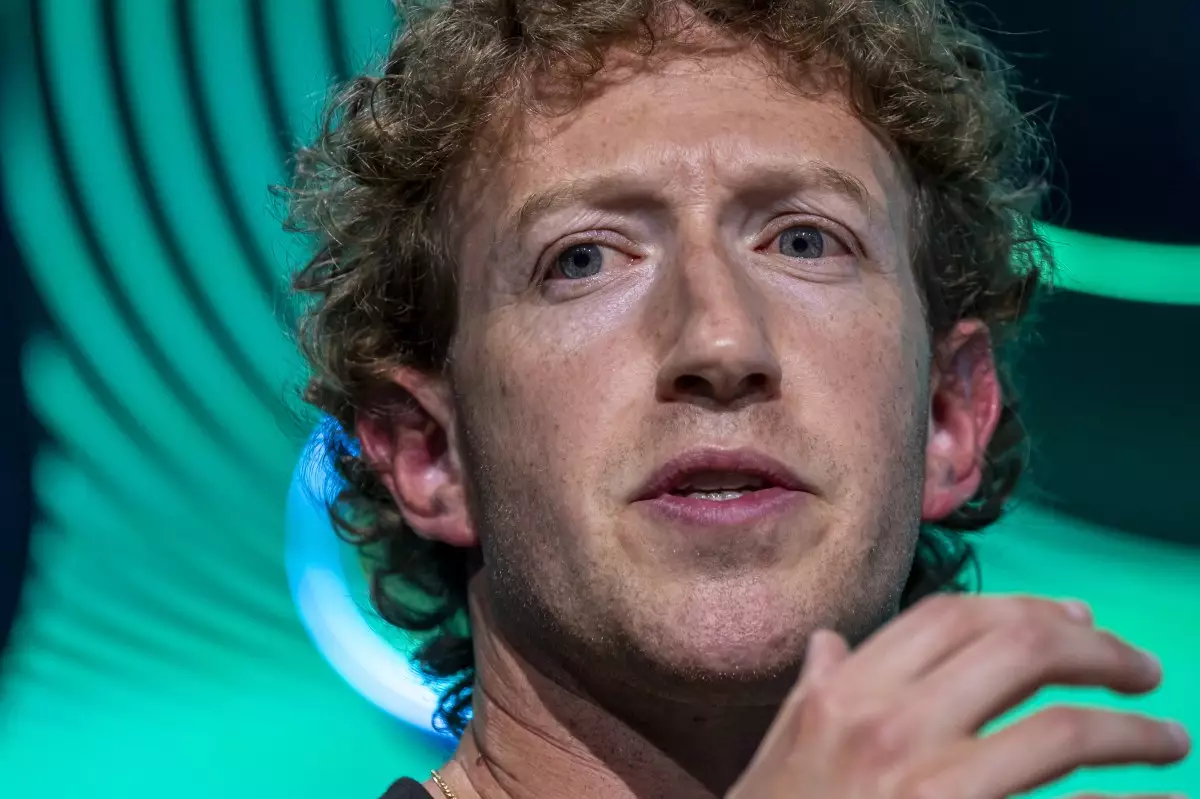In recent days, a significant spike in interest surrounding the cancellation and deletion of Meta platforms—Facebook, Instagram, and Threads—has been observed in the United States. This surge in Google searches coincides with Meta’s controversial announcement regarding changes in their content moderation policies under CEO Mark Zuckerberg. As the company moves towards eliminating its third-party fact-checking system and easing restrictions on political discourse, the implications of these decisions raise important questions about the future of social media and public discourse.
Following Zuckerberg’s declaration, which many perceive as an effort to pander to the impending Trump administration, the reaction from the public has been swift and severe. In just a few days, Google searches such as “how to permanently delete Facebook” reached unprecedented heights on Google Trends, hitting the maximum interest score of 100. Other related queries—ranging from “how to delete all photos from Facebook” to “alternative to Facebook” and “how to delete Instagram account without logging in”—have experienced a staggering increase in searches, reportedly exceeding 5,000% compared to previous rates. This dramatic escalation in user interest underscores a growing discontent with Meta’s strategic pivot away from protecting its users from harmful online content.
The decision by Meta to dilute its content moderation policies emerges from a broader historical context marked by grave repercussions related to misinformation and hate speech on its platforms. The events surrounding the January 6, 2021, insurrection highlight the potential for Meta’s platforms to be weaponized for violent ends. Internal investigations revealed that Facebook lagged in its responses to the misinformation campaigns spearheaded by Trump’s allies, despite having identified proactive measures to address the harmful spread of divisive content.
Moreover, the company has acknowledged its role in facilitating violence beyond the United States, specifically regarding the atrocities committed against the Rohingya people in Myanmar. Such alarming historical precedents should provoke serious contemplation about the ramifications of Meta’s recent policies. In the past, Zuckerberg has publicly stated that the general user community wishes to distance themselves from excessive political discourse, initiating a strategy to limit such content. However, the sudden reversal of these measures suggests a disregard for the lessons learned from past incidents of online-driven violence.
As Meta loosens its grips on content regulation, users are increasingly exploring alternative social media platforms. The interest in apps like Bluesky and Mastodon is on the rise, reflecting a collective desire for safer online environments. Mastodon’s CEO, Eugen Rochko, has denounced Meta’s policy changes as unacceptable, arguing that they may contribute to a wave of impunity regarding hate speech. By contrast, platforms like Mastodon are committed to enforcing strict guidelines that uphold user safety and foster healthier conversations.
The growth of decentralized platforms can be seen as a direct response to perceived failures by large tech firms to adequately manage the integrity of their platforms. With users actively seeking community-driven alternatives that prioritize ethical content management, social media dynamics may soon witness a paradigm shift as individuals gravitate toward platforms that reflect their values more closely.
The recent surge in interest around abandoning Meta’s platforms highlights a growing skepticism about the company’s direction and commitment to user welfare. As discussions about political consequences and the retraction of content safeguards gather momentum, the social media landscape stands at a critical crossroads. Ensuring that platforms remain spaces for constructive dialogue free from incitements to violence requires a fundamental re-examination of corporate policies.
In an era where users are increasingly vocal about their needs and expectations, social media entities must recognize the importance of a responsible approach to content moderation. As alternatives gain popularity, the landscape of social media could be reshaped, driven by user demand for meaningful engagement and safety. The actions of platforms like Meta will likely dictate their longevity and relevance as digital forums evolve in the coming years.

